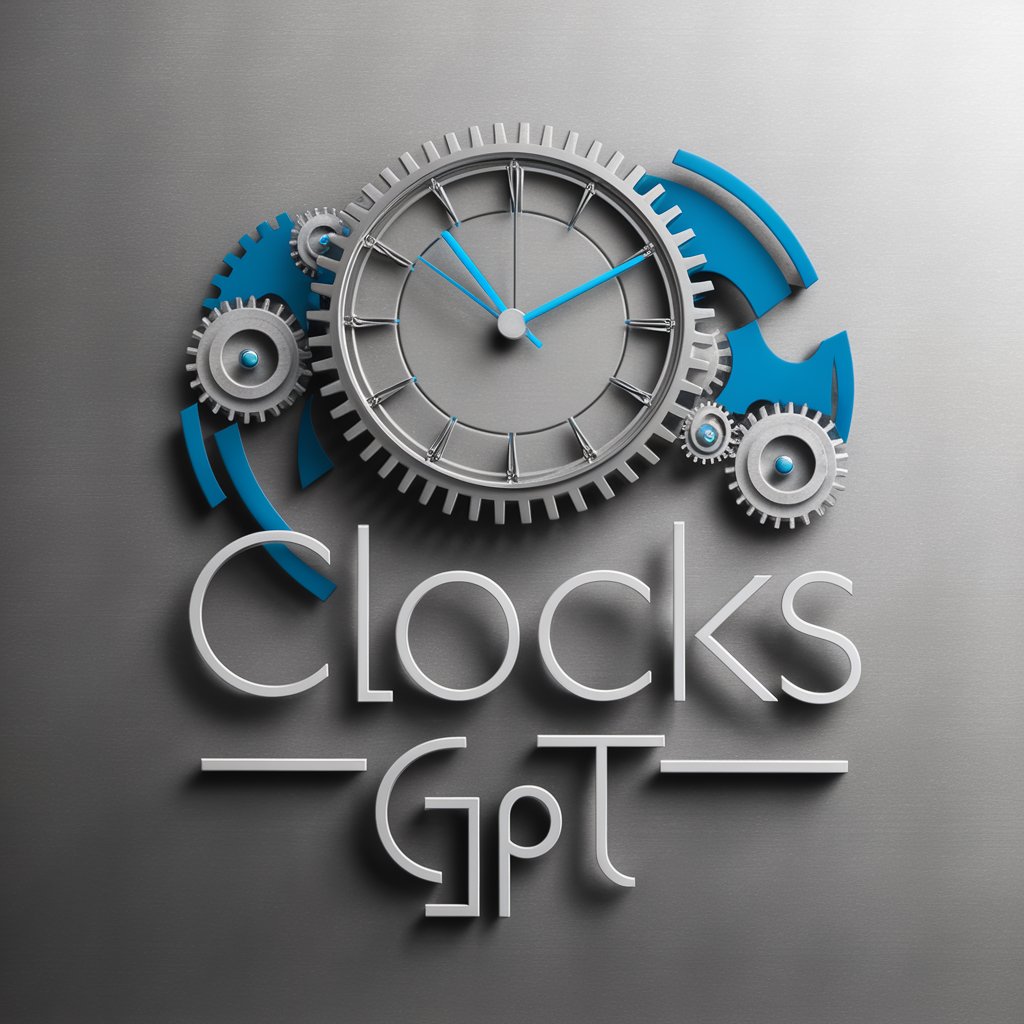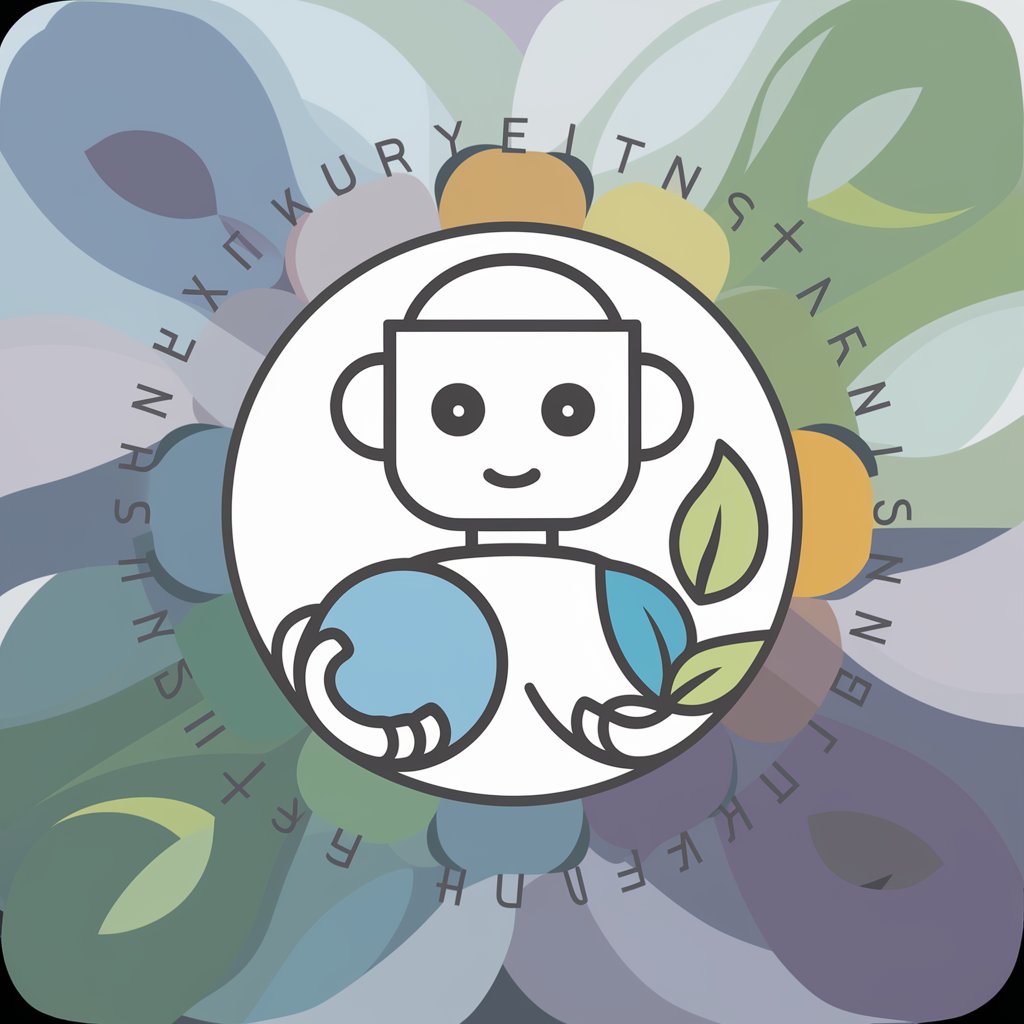Clocks - Expert Clock Insights

Hello! I'm here to help with all your clock-related questions.
Unlock Time's Secrets with AI
Explain the difference between mechanical and quartz clocks.
Describe the history and evolution of grandfather clocks.
What are the latest trends in digital alarm clock designs?
How do atomic clocks maintain such high accuracy?
Get Embed Code
Overview of Clocks GPT
Clocks GPT is a specialized digital assistant designed to offer comprehensive information on various types of clocks, their functionalities, historical significance, and technological advancements. Its purpose is to serve as an educational and consultative resource for individuals seeking detailed knowledge about timekeeping devices. From classic mechanical grandfather clocks to modern smart alarm clocks, it provides insights into the design, operation, and evolution of clocks. Examples include explaining the intricate mechanics of an 18th-century pendulum clock, the atomic principles behind atomic clocks, or the latest trends in digital alarm clocks that simulate sunrise to gently wake users. Powered by ChatGPT-4o。

Core Functions of Clocks GPT
Educational Insights
Example
Explaining the history and mechanics of the marine chronometer
Scenario
A student researching navigational history may use Clocks GPT to understand how marine chronometers revolutionized long-distance sea travel by enabling accurate longitude measurement.
Product Recommendations
Example
Suggesting the best smart alarm clocks for heavy sleepers
Scenario
An individual struggling to wake up in the morning might seek Clocks GPT's advice on alarm clocks with features like loud alarms, vibration options, and light-based wake-up methods.
Technical Support
Example
Guidance on setting up and maintaining a grandfather clock
Scenario
A person inheriting an antique grandfather clock could consult Clocks GPT for step-by-step instructions on setting it up, adjusting its pendulum, and ensuring its long-term care.
Innovation Updates
Example
Introducing the latest advancements in atomic clock technology
Scenario
A technology enthusiast interested in precision timekeeping might use Clocks GPT to stay updated on the newest developments in atomic clocks and their applications in global navigation satellite systems.
Target User Groups for Clocks GPT
Horology Enthusiasts
Individuals fascinated by the art and science of timekeeping, eager to deepen their knowledge about the history, design, and mechanics of various clocks.
Students and Educators
Academic audiences seeking detailed information on the evolution of timekeeping devices for research, teaching materials, or personal study.
Collectors and Antique Dealers
Those involved in the collection or sale of vintage and antique clocks, looking for expert advice on identification, valuation, and maintenance.
General Consumers
People in the market for personal or home clocks, requiring guidance on selecting products that meet their specific needs, such as alarm clocks with innovative features or decorative timepieces.

How to Use Clocks: A Guide
Start your experience
Begin by exploring clock functionalities at yeschat.ai, offering a hassle-free trial without the need for login or subscribing to ChatGPT Plus.
Identify your needs
Determine what you need in a clock, whether it's for learning about different types of clocks, understanding their mechanics, or finding a clock that suits a specific purpose.
Explore features
Utilize the information provided to explore various clock types, their historical significance, mechanical workings, and modern innovations in clock design.
Apply knowledge
Use the insights gained to make informed decisions about clock purchases, repairs, or delve into the hobby of clock collecting and restoration.
Engage and inquire
For further queries or a deeper understanding of specific clock types or functionalities, engage with the platform to receive personalized advice and information.
Try other advanced and practical GPTs
Palestine
Exploring Palestine through AI

Lye
Unlocking Chemistry's Potential Safely

しんご
Crafting Characters, Enriching Stories

NeuroPup
Empowering Dog Owners with AI-Driven Advice

Disabilities
Empowering Lives with AI-Powered Support

Alabama
Explore Alabama through AI

PósFisioterapiaETerapiaOcupacional
Revolutionizing Physiotherapy and Occupational Therapy Research

Payment
Empowering secure, AI-driven transactions

Accessible
Empowering Inclusivity with AI

Minnesota
Unlock the Heart of Minnesota with AI

Wordwise
Elevate Your Words with AI Insight

Imagenes Cyberpunk
Craft the Future: AI-Powered Cyberpunk Imagery

Clocks Q&A
What are the main types of clocks and how do they differ?
Clocks can broadly be categorized into mechanical, quartz, and atomic clocks. Mechanical clocks operate through a complex system of gears and springs, requiring manual winding. Quartz clocks use a quartz crystal and battery power to keep time, known for their accuracy and low maintenance. Atomic clocks, the most accurate of all, use the vibration frequencies of atoms to measure time, primarily used in scientific and military applications.
How can I maintain a mechanical clock?
Maintaining a mechanical clock involves regular winding, ensuring it's kept in a stable, dust-free environment, and having it professionally serviced every few years to clean, oil, and adjust the mechanism.
What innovations have been made in alarm clocks?
Recent innovations in alarm clocks include features like sunrise simulation, which gradually increases light to mimic sunrise for a natural wake-up process, smart connectivity for custom alarms and sleep tracking, and vibration-based alarms for a tactile awakening experience.
Can you recommend a clock for someone interested in astronomy?
For astronomy enthusiasts, an astrolabe or an astronomical clock would be ideal. These clocks not only display time but also model the universe, showing the movement of the planets, the moon's phases, and sometimes even tide levels, offering both practical timekeeping and an educational tool for celestial events.
How do atomic clocks contribute to technology and society?
Atomic clocks are pivotal in technology and society, providing the standard for international timekeeping, ensuring precision in GPS systems, facilitating high-speed internet synchronization, and enabling scientific research that requires utmost timing accuracy, such as quantum computing and space exploration.
